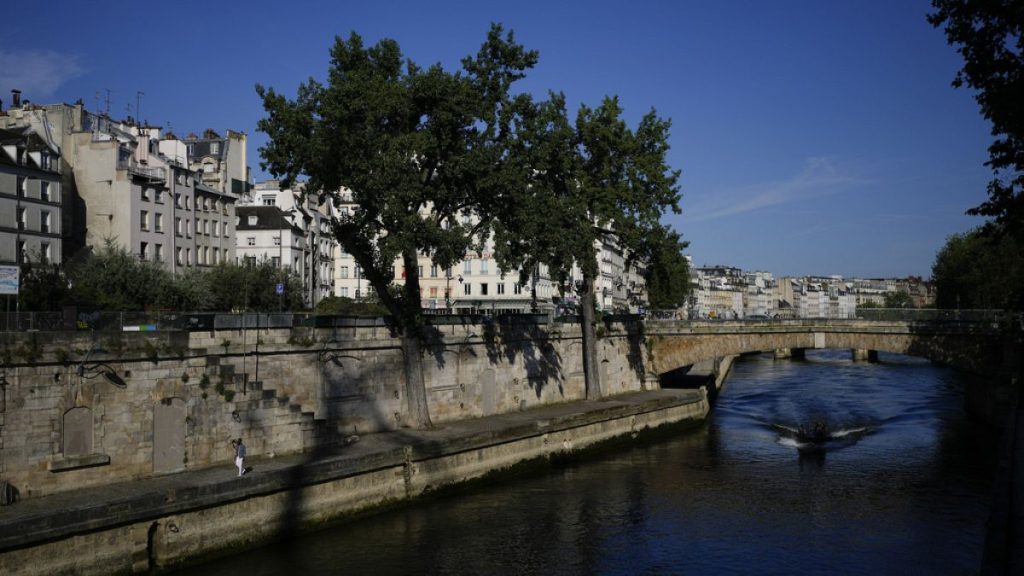Paris Mayor Anne Hidalgo recently took a dip in the Seine River less than two weeks before the start of the 2024 Olympics in an effort to demonstrate that the notoriously polluted waterway was clean enough to host swimming competitions. However, concerns over water quality led to the cancellation of a pre-race triathlon event that was planned to take place in the river. Organizers removed the swimming leg of the triathlon familiarization due to questions over the river’s cleanliness, which were exacerbated by heavy rain that fell during the Olympics’ opening ceremony. Swimming in the Seine has been prohibited for over a century due to poor water quality, but the French government has invested heavily, including €1.3 billion, to prepare the river for the Games. Despite these efforts, the decision to cancel the triathlon swimming leg raised doubts about the river’s readiness to host aquatic events.
Since 2015, organizers have made significant investments to prepare the Seine for the Olympics and ensure a cleaner river for Parisians following the Games. The plan included building a massive underground water storage basin in central Paris, upgrading sewer infrastructure, and improving wastewater treatment plants. Despite these efforts, the cancellation of the triathlon swimming leg reignited concerns about the river’s water quality and raised questions about whether it would be safe enough for athletes to compete in swimming events. Mayor Hidalgo’s public demonstration of swimming in the Seine was aimed at assuring onlookers that the water was clean enough to swim in, but the cancellation of the triathlon event cast doubt on the river’s suitability for aquatic competitions.
American triathlete Taylor Spivey expressed disappointment at the cancellation of the triathlon’s swimming leg, emphasizing that she did not swim extensively just to run and bike. The decision to cancel the event raised concerns among athletes and spectators about the river’s readiness for Olympic competitions and whether the water quality had been adequately addressed. Despite the assurances from French authorities that the river would be clean enough to host events like the swimming portion of the triathlon and the marathon swimming competition, the cancellation of the triathlon’s swimming leg prompted renewed scrutiny of the river’s cleanliness. With less than two weeks before the start of the Olympics, the uncertainty surrounding the Seine’s water quality added another layer of complexity to the Games’ preparations.
The cancellation of the pre-race triathlon event in the Seine River due to concerns over water quality underscored the challenges of preparing the waterway for Olympic competitions. While the French government and organizers have invested significant resources in improving the river’s cleanliness, the cancellation of the swimming leg raised doubts about the river’s readiness. Mayor Hidalgo’s symbolic swim in the Seine was an attempt to demonstrate that the water was safe for swimming, but the decision to cancel the triathlon event highlighted the ongoing concerns about the river’s water quality. As Paris prepares to host the 2024 Olympics, the issue of the Seine River’s cleanliness remains a focal point of scrutiny and debate, raising questions about the river’s suitability for aquatic events during the Games.
Despite the cancellation of the triathlon swimming leg, organizers of the 2024 Olympics have expressed confidence that the Seine River will be clean enough to host swimming competitions and other aquatic events. The French government’s investment of €1.3 billion in preparing the river for the Games reflects a commitment to ensuring that the waterway meets international standards for water quality. While concerns over the river’s cleanliness persist, officials have emphasized that significant progress has been made in improving the Seine’s water quality and that measures are in place to address any remaining issues. With the Games set to begin in less than two weeks, the focus is on ensuring that the Seine River is safe for athletes and spectators alike, despite the challenges posed by its historically poor water quality. As Paris gears up to host the Olympics, the issue of the Seine’s cleanliness continues to be a key consideration for organizers and authorities involved in the preparation and management of the Games.


